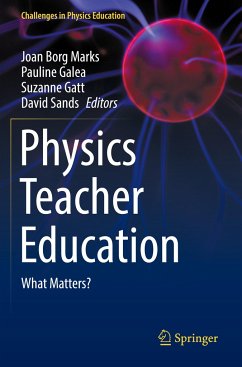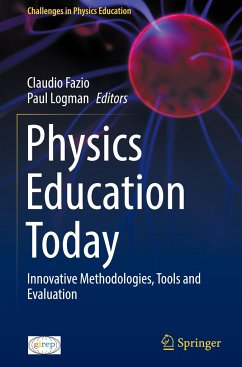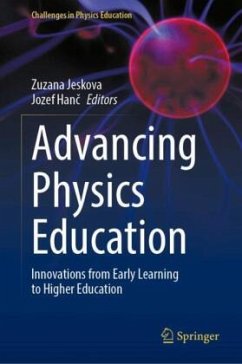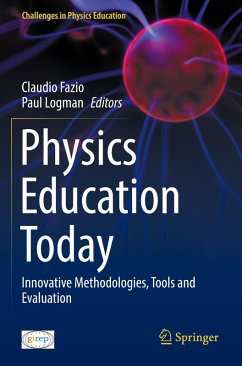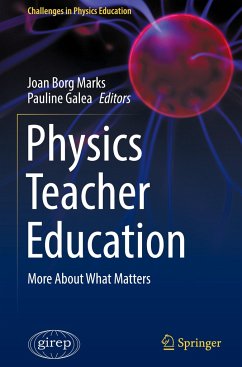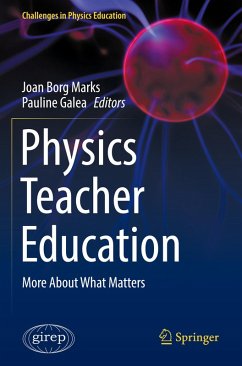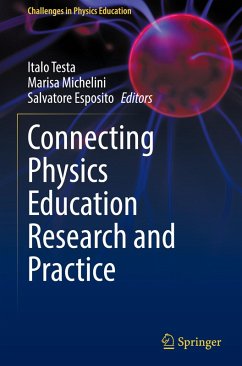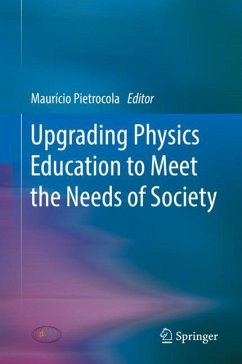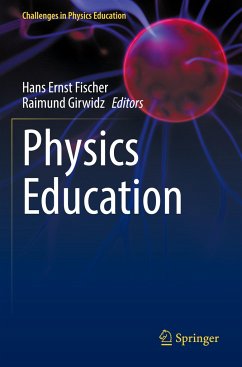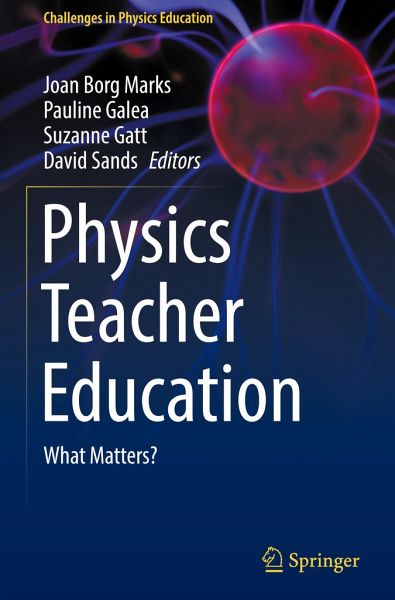
Physics Teacher Education
What Matters?
Herausgegeben: Borg Marks, Joan; Galea, Pauline; Gatt, Suzanne; Sands, David

PAYBACK Punkte
38 °P sammeln!
This book presents the most up-to-date research contributions focusing on progress in the field of physics education. It provides researches and results that are based on the most relevant matters in physics teacher education and how these matters can be improved for the satisfaction of both teachers and learners. The work is the by-product of the collaboration between GIREP (the International Research Group on Physics Teaching) and the University of Malta. The contributing authors present close examinations of the following topics: ICT and multimedia in teacher education; experiments and labo...
This book presents the most up-to-date research contributions focusing on progress in the field of physics education. It provides researches and results that are based on the most relevant matters in physics teacher education and how these matters can be improved for the satisfaction of both teachers and learners. The work is the by-product of the collaboration between GIREP (the International Research Group on Physics Teaching) and the University of Malta. The contributing authors present close examinations of the following topics: ICT and multimedia in teacher education; experiments and laboratory work in teacher education; the role of quantum mechanics in teaching and learning physics; formal, non-formal and informal aspects of physics education at the primary level; strategies for pre-service physics teacher education at all levels; and in-service teacher professional learning strategies. The editors hope that many different stakeholders within scientific academia will find something of value in this compilation of the current most advanced ideas in physics education.



